The Primary Years Programme (PYP) is a well-known international curriculum for children aged 6 to 12. What makes Strothoff International School unique is that our first years of primary education are also state-approved, combining the Hessen education plan with the international IB framework. The PYP journey begins in our Reception class, where we gently prepare children from the age of five for a happy and confident start in Year 1 (PYP 1).
Our teaching combines the Hessian curriculum with the future-oriented concept of International Baccalaureate (IB) framework, which is known worldwide for its high quality and international orientation. We impart knowledge and at the same time promote critical thinking, problem-solving skills and the development of intercultural competence.
Teachers and students live a predominantly English-speaking school life, in which your child grows up naturally with the new language - whether they have previous knowledge of English or not. Bilingual lessons help children to immerse themselves in an environment, which may be new to them.
All-day care in our Primary School not only promotes learning, but also social interaction. We are a warm, open, international community that maintains the joy of learning and lives respect and support.
We encourage children to learn by doing and to use their knowledge in real-life situations. Working together across subjects and year groups helps them to think independently, gain confidence and believe in their own abilities.
The Primary Years Programme (PYP) focuses on the holistic development of your child. Alongside academic learning, it places equal importance on character growth as well as social, physical and emotional development.
Our after-school activities (ASAs) offer your child the opportunity to develop their interests, discover new talents and grow beyond the classroom. The activities ideally complement our lessons and strengthen creativity, team spirit and self-confidence.
The PYP Unit of Inquiry promotes ownership by empowering students to take action at the end of a teaching unit based on what they have learned. During their projects, PYP students are inspired to think about themselves and their world and to solve problems.
Students begin to explore their own self-efficacy in the first PYP year. They learn about the impact their choices have on their well-being, how families are connected over time, and how artistic performances help communicate emotions and culture.
Natural science investigations include "weather systems and changes that affect our daily lives," while social investigations examine the role of communities in promoting safety and belonging.
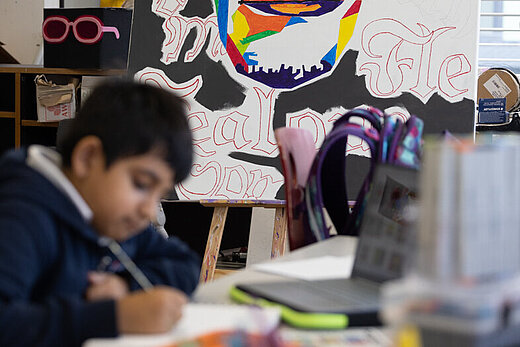
In this phase, the children engage intensively with fundamental social and environmental issues, including rights and responsibilities, migration, storytelling and sustainability.
There is a focus on the historical and cultural exploration of migration, with children understanding that people leave their homes for different reasons and that this affects both their own lives and the places they move to.
They are also encouraged to explore the solar system scientifically and recognize the uniqueness of the Earth in the vast and fascinating universe. This is complemented by teaching how people can protect and care for the earth's resources through conscious practices, encouraging environmentally friendly habits and ecological responsibility.
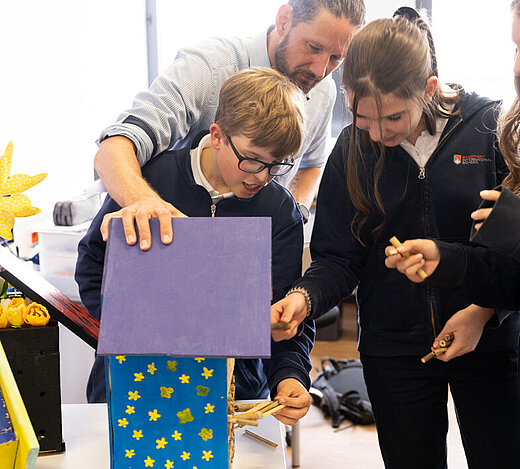
In the third PYP year, students focus on creativity, historical perspectives and technology.
They learn how people can express and develop their creativity through the arts, celebrating artistic expression. At the same time, basic technical concepts are taught, such as how simple machines help to make work more efficient. In addition, students explore human responsibility for their actions and how human activities change the environment.
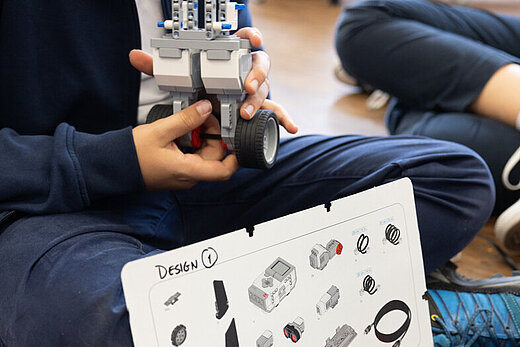
Students begin to analyze more complex systems and their impact on society this school year. They examine how exploration and discovery change our perception and understanding of the world, focusing on the role of researchers and scientists.
At the same time, they gain media literacy by learning to critically question the persuasive techniques used in the media. Complementing this, they apply their knowledge practically by using scientific laws and the design cycle as little engineers, experimenting with technology and physics to develop solutions to problems.
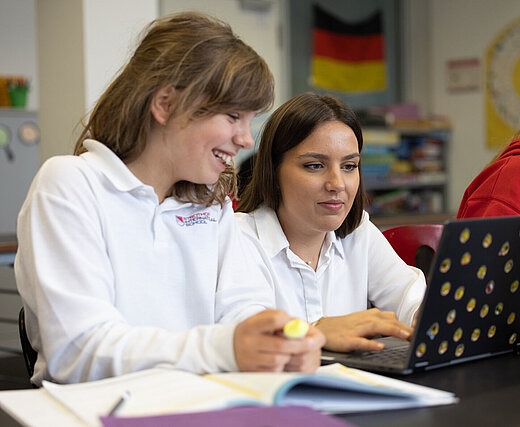
In the final year of the PYP, students take ownership of their learning by conducting independent research and taking leadership roles. A highlight is the PYP Exhibition, a student-led research project that demonstrates an in-depth investigation of a topic of their own choosing. In addition, they explore how people develop systems to organize and govern themselves and address the importance of equity in building a just and inclusive society, encouraging them to be active advocates for social justice.
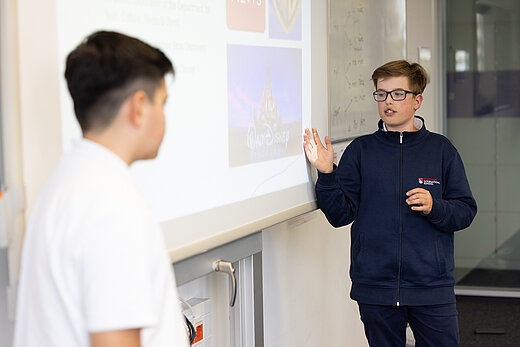
Children should not only learn to read, write and count, but also discover themselves, develop their strengths and see the world with open eyes. Education begins with trust, relationships and enthusiasm. We accompany each child with heart and mind, individually, attentively and with the aim of strengthening self-confidence, curiosity and zest for life. Because those who enjoy learning remain curious for a lifetime."
Christine Nykvist, Head of Primary School
Yes, children with no knowledge of German or English can be accepted. The school offers targeted language support (EAL = English as an Additional Language / DaZ = German as a second language) so that the children can participate in lessons quickly.
Our teaching follows the Hessian curriculum, so a transfer in either direction is possible at any time, depending on the child’s language skills.
A state-recognised substitute school is an independent school that follows the educational goals and standards set by the state of Hessen. It serves as an alternative to a public school and grants the same qualifications. Teaching follows the state curriculum but is enhanced by the Strothoff International School’s own educational approach as a IB World School.
Language support is provided in small groups through additional lessons inside and outside the regular classroom. Teachers who specialize in language development support the children individually until they are linguistically confident.
Yes, vacation care is usually offered. These programs include creative, sports and language activities.